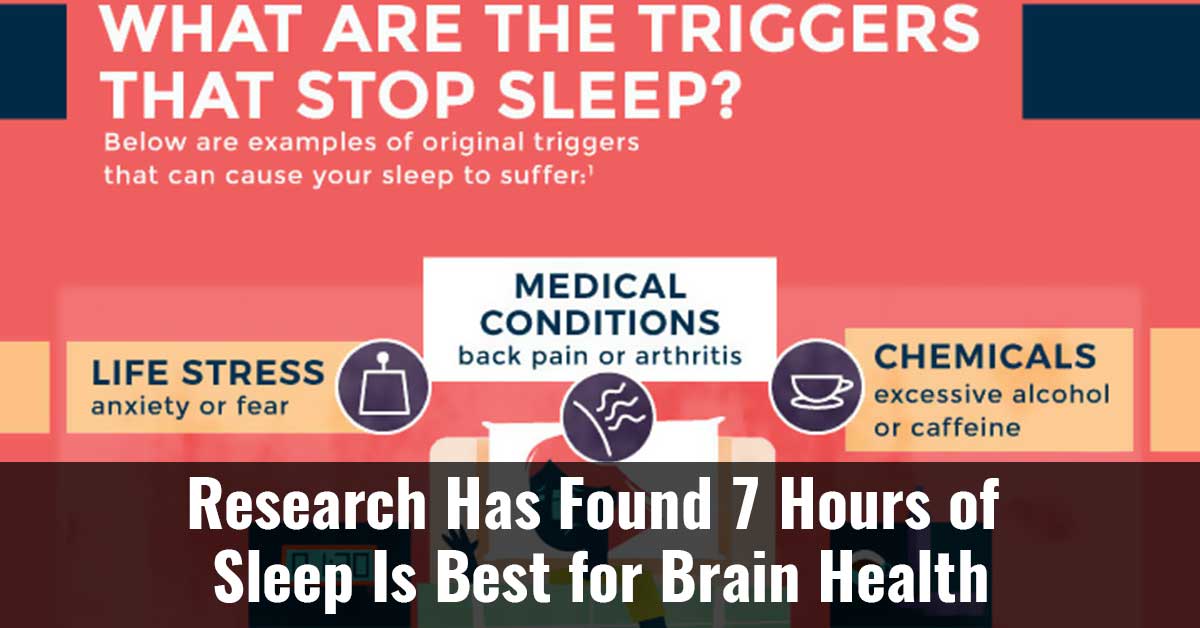According to research, 7 hours is the perfect sleep duration for middle-aged and older individuals, with inadequate or excessive sleep connected to reduced mental health and cognitive performance.1✅ JOURNAL REFERENCE
DOI: 10.1038/s43587-022-00210-2
Sleep plays a significant part in maintaining good cognitive function and psychological health. The brain is also kept healthy by the removal of waste products. Sleep patterns often change as we get older, such as trouble falling asleep as well as staying asleep, with reduced quality and quantity of sleep. It’s believed that these sleep disturbances could be contributing to psychiatric disorders and cognitive decline in aging individuals.
Data were analyzed from almost 500,000 individuals between the ages of 38 and 73 years old. Individuals were questioned about their mental health and well-being, sleeping patterns, and participated in a battery of cognitive tests. There was existing genetic and brain imaging data for nearly 40,000 of the individuals participating in the study.
From the data analysis, it was discovered that both insufficient and excessive sleep was related to poorer cognitive performance, which included problem-solving skills, memory, visual attention, and processing speed. Sleeping for 7 hours every night was the perfect duration for good cognitive performance and mental health, with individuals experiencing more depression and anxiety symptoms and poorer overall well-being if they had slept for longer or shorter duration.
A possible reason for inadequate sleep and cognitive decline connection could be because of the slow-wave disruption of ‘deep’ sleep. Disruption to this kind of sleep has been demonstrated to have a close relationship with memory consolidation in addition to amyloid build-up, an important protein that can lead to brain ‘tangles’ characteristic of some kinds of dementia. Lack of sleep may also limit the ability of the brain to rid itself of toxins.
The researchers also found an association between the amount of sleep and differences in brain area structures involved in memory and cognitive processing, again with greater changes linked to sleeping for more than or less than 7 hours.
Getting 7 hours of consistent sleep per night with little duration fluctuation was also important for better mental health and well-being and cognitive performance. Prior research has also revealed that sleep patterns that are interrupted are linked to an increase in inflammation, which indicates susceptibility to age-related diseases in elderly individuals.
Although the researchers couldn’t conclusively say that inadequate or excessive sleep results in cognitive problems, the analysis examining people over a longer time period seems to support this idea. The reasons why older individuals have poorer sleep however seem to be complex, influenced by genetic makeup and brain structure combination.
According to the researchers, the results indicate that too little or too much sleep could be a cognitive decline risk factor in aging. This is supported by prior studies that have reported an association between sleep duration and the risk of dementia and Alzheimer’s disease, in which cognitive decline is a major symptom.

Image Source – onstride



